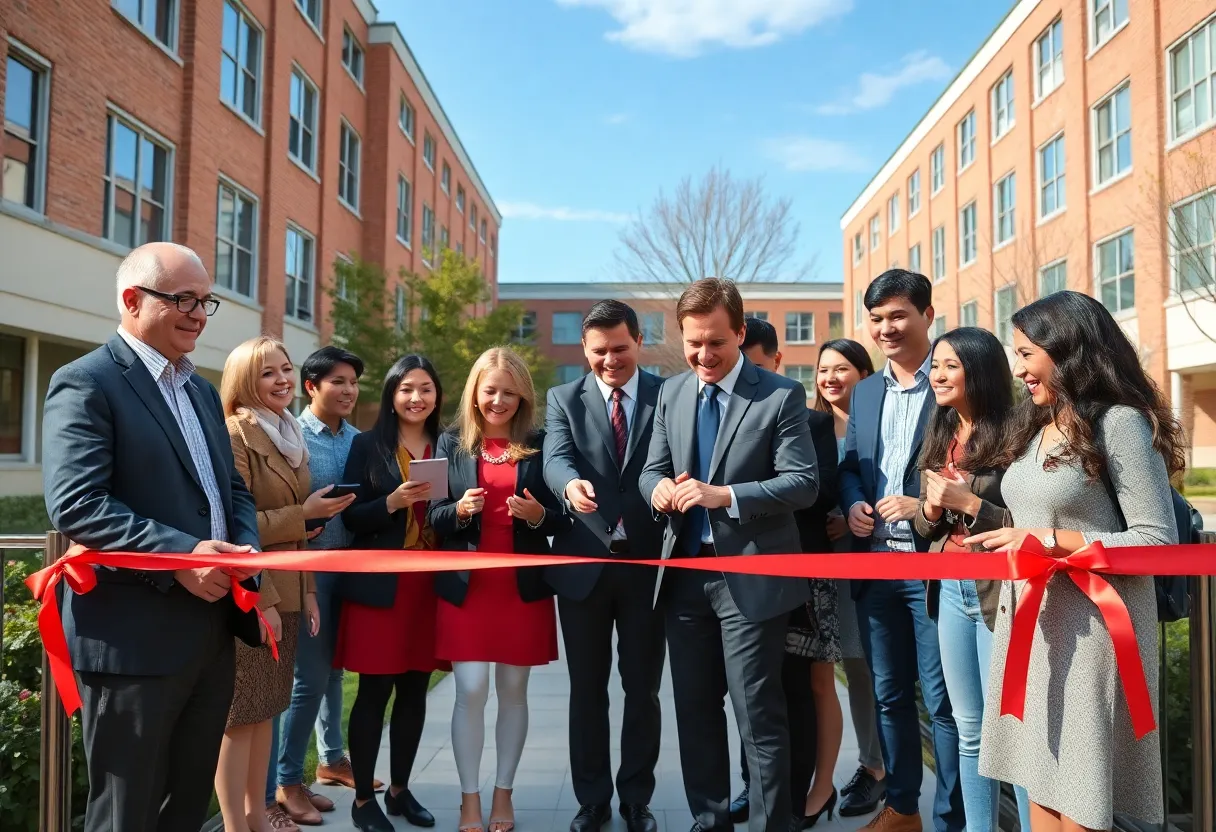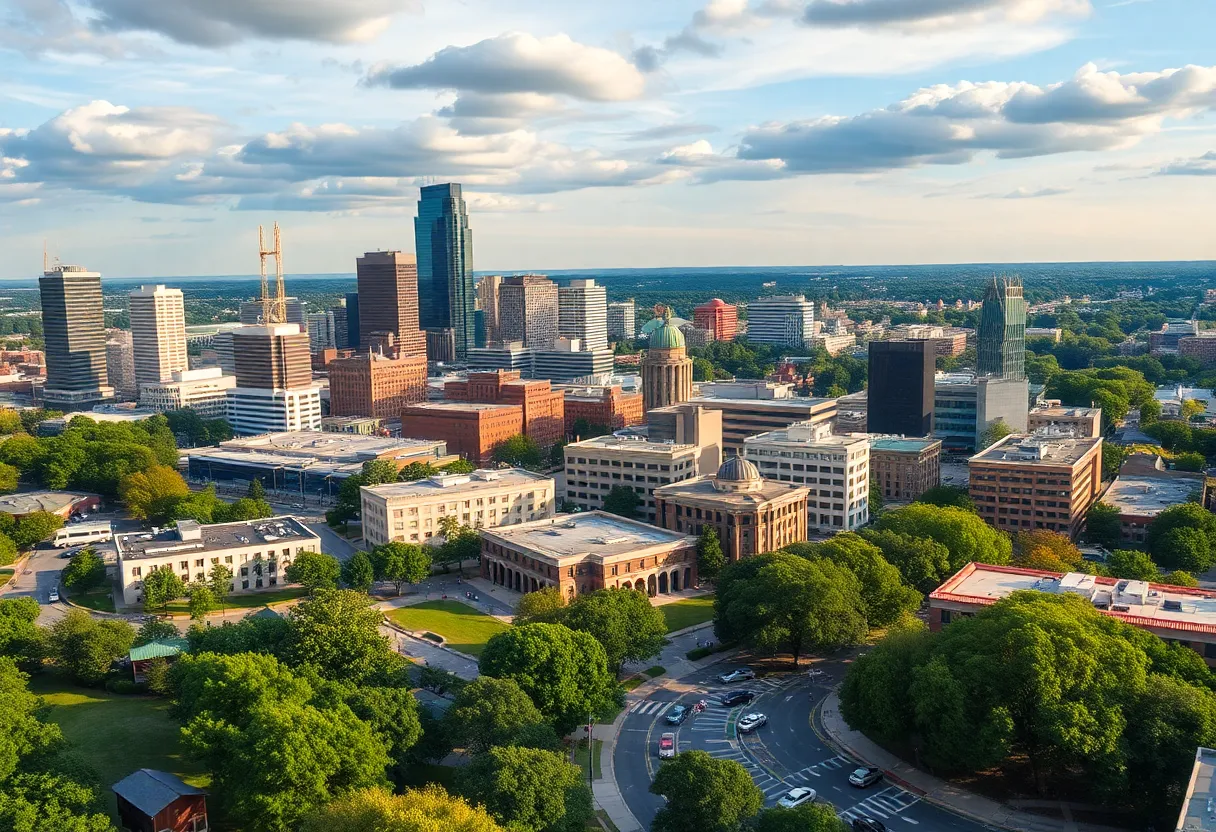News Summary
Columbia College celebrated the inauguration of its new Division of Education amid ongoing controversy over federal funding cuts impacting academic freedom. Local officials showed support for the college’s commitment to education, while tensions arise from federal mandates affecting Columbia University. Professors rally against compliance measures impacting civil rights and educational autonomy. This dual narrative highlights the complexities of higher education’s future and funding policies within the current political climate.
Columbia College Unveils New Education Division Amid Controversial Waves
Columbia, a vibrant city known for its educational institutions, celebrated a significant milestone this past Friday. The lively atmosphere at Columbia College was palpable as the school officially inaugurated its new Division of Education with a festive ribbon-cutting ceremony. The affair wasn’t just about shiny new facilities; it was a moment to highlight the college’s commitment to shaping the next generation of educators in Richland County.
Local officials were present at the ceremony, showcasing a united front in support of enhanced educational programs. Councilwoman Tyra K. Little from District 3, Councilman Paul Livingston from District 4, and Councilwoman Gretchen D. Barron from District 7 all made appearances to mark this exciting occasion. The newly established division aims to bolster education initiatives that are crucial for the region and beyond.
Controversy Brews Over Funding
However, as Columbia College pivots towards a bright future, contrasting shadows loom large. Around the same time, a significant controversy has arisen involving federal funding. Profound concerns have been voiced, as labor unions that represent professors at Columbia University have decided to take a stand against what they regard as troubling governmental actions. These unions are pursuing legal avenues in response to the Trump administration’s drastic decision to revoke about $400 million in federal research funding.
The reason? Protests that emerged on campuses following heightened tensions around the ongoing Israel-Hamas conflict stirred waves of discontent. The unions claim that this funding cut not only threatens the educational institution’s academic freedom but also imposes restrictions on free speech within the academic community.
Sweeping Policy Changes Announced
In light of the funding’s revocation, Columbia University has jumped on board with new policy changes that aim to comply with the Trump administration’s directives. These adjustments range from a thorough review of admissions policies to more accessible reporting processes for harassment. Stricter rules have also been proposed concerning the locations of protests, alongside a prohibition on masks during such events. The changes appear to extend police powers on campus, providing them greater authority to engage in arrests and manage any disturbances related to protests.
The decision to expand the provost’s office’s power in handling student discipline linked to protests and to evaluate Middle East studies programs has raised eyebrows across the academic board. While the Department of Health and Human Services, along with other federal agencies, heralded these actions as a “positive first step,” portions of the university faculty have expressed their concerns.
Faculty in Uproar Over Compliance
With more than 150 faculty members rallying in protest against the university’s compliance with federal demands, a striking display of solidarity emerged. Faculty members bore signs that advocated for democracy and the preservation of academic freedom. This uprising was not just about the university’s policies but rather a larger message about the implications of federal pressure on campus autonomy and civil rights.
The unfolding scenario has stirred conversations about the potential repercussions for academic institutions nationwide. Critics argue that Columbia’s actions might set a hazardous precedent for government intrusion in higher education, worrying about the implications for civil rights enforcement in educational settings across the country.
The Road Ahead
As Columbia College steps into an ambitious future with its new Division of Education, a delicate balance exists between ensuring quality education and maintaining institutional independence. With challenges in the form of federal funding disputes swirling around, many in the academic community are left pondering the future of education policy and civil rights law enforcement in our nation.
In a climate filled with contention and discussion, eyes are peeled on Columbia as it navigates this crucial crossroads. For now, the institution stands firm on its mission to cultivate driven educators while ensuring its voice remains clear amid the backdrop of ongoing protests and legal battles.
Deeper Dive: News & Info About This Topic
HERE Resources
South Carolina and Canada Strengthen Economic Ties
Funding Boost for Startups in South Carolina
Clinton Students Shine at State Science Olympiad
Former Student Charged in South Carolina State University Dormitory Shooting
Columbia Appoints William Kirkland as New SCRA Chair
Laurens County Launches New Scholarship Program
Governor McMaster’s Ambitious Budget Plans Ahead of Tenth Address
Chernoff Newman Announces New CEO David Campbell
Racist Text Messages Spark Outrage at South Carolina Universities
New Business Accelerator Program Launch in Columbia and Greenville
Additional Resources
- The New York Times
- CNN
- The Washington Post
- Encyclopedia Britannica: Columbia University
- Google Search: Columbia University protests







